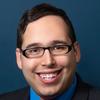Ethics: Model Rule 8.4(g), Unconstitutional Limits on Attorney Expression, and 2020 ABA Ethics Committee Comments
Recording of a 90-minute CLE video webinar with Q&A
This CLE course will review the continued efforts by the ABA and many state bars to regulate against "harassment" and "discrimination" in an attorney's speech or conduct, the debate over ABA Model Rule of Professional Responsibility 8.4(g), and when a state can legitimately regulate an attorney's speech related to the practice of law. After a federal district court in Pennsylvania issued a preliminary injunction against one state's attempt to regulate such speech and conduct, Greenberg v. Haggerty, Case No. 20-3822 (E.D. Penn. Dec. 8, 2020), the ABA and some state bar associations issued clarifications. Whether those statements make any substantive difference remains to be seen.
Outline
- Regulation of lawyer speech
- History of Rule 8.4(g)
- Constitutional concerns under Rule 8.4(g)
- Due process
- First Amendment free expression
- Freedom of association and religion
- Vagueness
- Understanding when speech or conduct is or is not "related to the practice of law"
- NIFLA and the regulation of occupational speech
- Commercial issues
- Political speech
Benefits
The panel will review these and other key issues:
- What is the difference between regulating conduct and speech in light of the Supreme Court's decision in NIFLA v. Becerra, 138 S. Ct. 2361 (2018)?
- What do critical terms in Model Rule 8.4(g) mean?
- Did the ABA 2020 Ethics Committee comments make any difference in the scope or constitutionality of the model rule?
- What are the First Amendment concerns that Model Rule 8.4(g) raises?
- How the rule might be revised to obtain its goals
Faculty

Ethan W. Blevins
Attorney
Pacific Legal Foundation
Mr. Blevins litigates cases involving the First Amendment, property rights, and the separation of powers.
| Read MoreMr. Blevins litigates cases involving the First Amendment, property rights, and the separation of powers.
Close
Patrick Eckler
Partner
Freeman Mathis & Gary
Mr. Eckler’s practice has evolved from primarily representing insurers in coverage disputes to managing complex... | Read More
Mr. Eckler’s practice has evolved from primarily representing insurers in coverage disputes to managing complex litigation in which he represents a wide range of professionals, businesses and tort defendants. His record of success includes numerous summary judgments, several successful trial results and multiple favorable appellate results. His coverage practice for insurers and the insured involves CGL and personal lines policies, issues involving the duties to defend and indemnify, bad faith and the application of exclusions.
Close
Daniel M. Ortner
Attorney
Pacific Legal Foundation
Mr. Ortner joined Pacific Legal Foundation in the fall of 2018, focusing on the First Amendment, property rights,... | Read More
Mr. Ortner joined Pacific Legal Foundation in the fall of 2018, focusing on the First Amendment, property rights, economic liberty, and curtailing the overreach of the administrative state.
Close